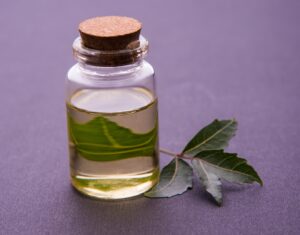The best psoriasis treatment plan is part of our autoimmune disease therapy and healing protocol. Psoriasis often causes a scaly, itchy rash. Plaque psoriasis references the build-up on the skin of skin cells during a flare-up period of the disease. Traditional psoriasis treatment often involves topical lotions and psoriasis treatment creams, light therapy and injections. At Sunridge we look to heal the source of the autoimmune disorder and how to cure psoriasis permanently and bring an end to the disease.
Inverse Psoriasis mainly affects the folds of skin around the groin, buttocks and breasts. It causes smooth patches that become worse from friction or sweat. Fungal infections may also trigger Inverse Psoriasis.
Nail Psoriasis can affect both fingernails and toenails. The nails often become pitted, grow in an abnormal way, discolor and even loosen from their beds (onycholysis). Severe psoriasis may cause them crumble entirely. Treatment may include topical corticosteroids but not address the core cause of the disease.
Inverse Psoriasis mainly affects the folds of skin around the groin, buttocks and breasts. It causes smooth patches that become worse from friction or sweat. Fungal infections may also trigger Inverse Psoriasis.
Nail Psoriasis can affect both fingernails and toenails. The nails often become pitted, grow in an abnormal way, discolor and even loosen from their beds (onycholysis). Severe psoriasis may cause them crumble entirely. Psoriasis Treatment may include topical corticosteroids but not address the core cause of the disease.
Guttate psoriasis is an irritating condition that causes small, drop-shaped scaling spots on the core and arms. Often triggered by a bacterial infection such as strep throat, it is and marked by inflammation of the skin in susceptible people who are predisposed for Mixed Connective Tissue Disease (MCTD).

Psoriasis treatment varies for this condition but is still directed toward the outward manifestation of the disease.
Erythrodermic and Pustular Psoriasis are the least common types of the disease. Both require immediate medical intervention and outbreaks are often followed by hospitalization.
As in all autoimmune disorders, the immune system is fighting against the body’s tissues by creating antibodies. In psoriasis the antibodies attack the connective tissues of the skin.
Psoriasis Symptoms
Psoriasis can be triggered by a number of different factors, including infections like strep throat or skin irritation from an injury. The condition may also develop after exposure to harsh weather conditions such as extreme cold and dryness because these types of external factors cause your body’s immune system to overact against its own cells which then causes psoriasis. Quick withdrawal from oral corticosteroids can also trigger symptoms so care in titrating steroids is critical.
References on Psoriasis Treatment
Craig A. Elmets, Neil J. Korman, Elizabeth Farley Prater, Emily B. Wong, Reena N. Rupani, Dario Kivelevitch, April W. Armstrong, Cody Connor, Kelly M. Cordoro, Dawn M.R. Davis, Boni E. Elewski, Joel M. Gelfand, Kenneth B. Gordon, Alice B. Gottlieb, Daniel H. Kaplan, Arthur Kavanaugh, Matthew Kiselica, Daniela Kroshinsky, Mark Lebwohl, Craig L. Leonardi, Jason Lichten, Henry W. Lim, Nehal N. Mehta, Amy S. Paller, Sylvia L. Parra, Arun L. Pathy, Michael Siegel, Benjamin Stoff, Bruce Strober, Jashin J. Wu, Vidhya Hariharan, Alan Menter, Joint AAD–NPF Guidelines of care for the management and treatment of psoriasis with topical therapy and alternative medicine modalities for psoriasis severity measures.
Journal of the American Academy of Dermatology, Volume 84, Issue 2, 2021, Pages 432-470, ISSN 0190-9622, https://doi.org/10.1016/j.jaad.2020.07.087. Abstract: Psoriasis is a chronic, inflammatory, multisystem disease that affects up to 3.2% of the United States population. This guideline addresses important clinical questions that arise in psoriasis management and care and provides recommendations based on the available evidence. The treatment of psoriasis with topical agents and with alternative medicine will be reviewed, emphasizing treatment recommendations and the role of dermatologists in monitoring and educating patients regarding benefits as well as risks that may be associated. This guideline will also address the severity assessment methods of psoriasis in adults. Keywords: alternative medicine (AM); clinical guidelines for psoriasis; dermatology; guidelines; psoriasis; severity assessment; skin disease; topical agents.
For answers and to make an appointment, call toll-free 800-923-7878 to speak with our Patient Care Team.
Recover your vitality, reclaim your energy and rediscover your health.


